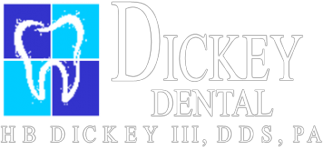What you eat profoundly affects your overall health, including your oral health. Dr. Hugh Brad Dickey of Dickey Dental in Rockhill, SC, explains how diet influences dental well-being and offers practical dietary tips to keep your smile healthy.
Sugar and Tooth Decay
One of the primary dietary culprits behind tooth decay is sugar. When you consume sugary foods and drinks, bacteria in the mouth produce acids that erode tooth enamel, leading to cavities. Reducing sugar intake is crucial for maintaining healthy teeth.
Acidic Foods and Enamel Erosion
Acidic foods and beverages, such as citrus fruits and soda, can also harm tooth enamel. Frequent consumption of these items can lead to enamel erosion, making teeth more susceptible to decay and sensitivity. Rinsing your mouth with water after consuming acidic foods can help mitigate their effects.
Nutrient-Rich Foods for Strong Teeth
A balanced diet rich in vitamins and minerals is essential for strong teeth and gums. Calcium and vitamin D are particularly important for maintaining healthy teeth. Foods like dairy products, leafy greens, and nuts are excellent sources of these nutrients.
Hydration and Oral Health
Staying hydrated is vital for oral health. Water helps wash away food particles and bacteria, and stimulates saliva production, which protects against tooth decay. Drinking fluoridated water can also help strengthen tooth enamel.
Foods to Avoid and Embrace
- Avoid: Sugary snacks, sticky candies, and carbonated beverages.
- Embrace: Fruits, vegetables, whole grains, lean proteins, and dairy products.
Eat Well for a Healthy Smile
Your diet plays a crucial role in your oral health. You can protect your teeth and gums from decay and disease by making mindful food choices. At Dickey Dental, Dr. Hugh Brad Dickey offers expert advice on maintaining a mouth-healthy diet. Visit us today for personalized dental care and guidance.


